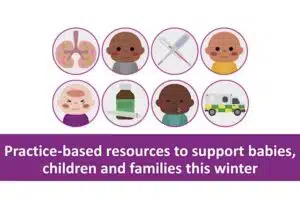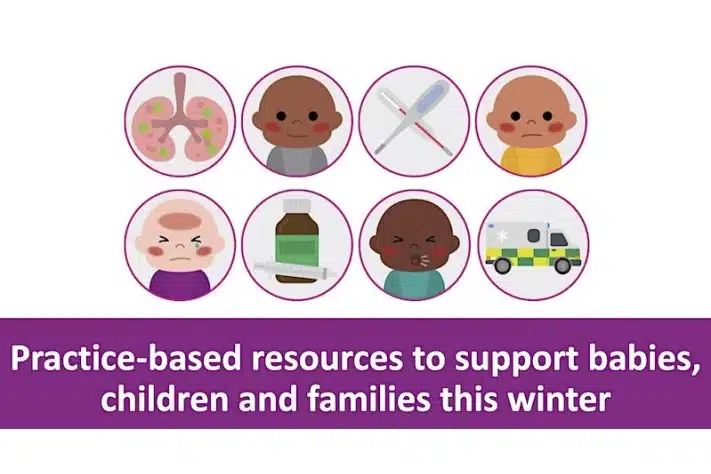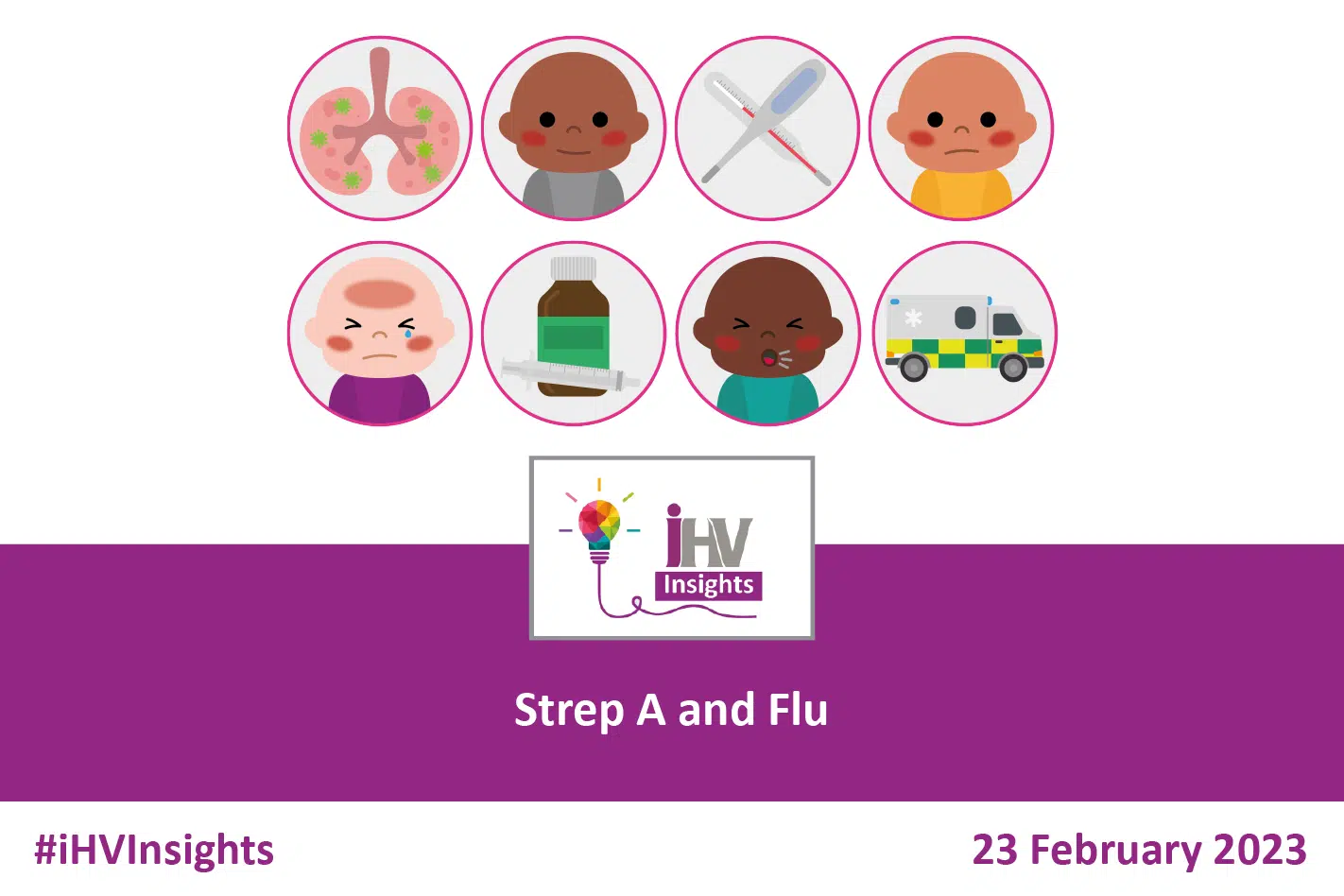On Tuesday 16 January 2024, we delivered a Winter Illness webinar which aimed to refresh practitioners’ knowledge and to share the wide range of resources that we have available to help you support babies, children & families this winter.
The following updates were provided from partner organisations during the webinar:
- Healthier Together provided an update from a Lead Paediatrician on the current winter illness context
- Bliss Charity shared resources on recognition of illness in babies with Black and Brown skin
- Barnardo’s discussed damp and mould and the impact this has on respiratory health
Babies under one year of age have the highest Emergency Department (ED) attendance rate, as highlighted in our recent report ‘Understanding the rise in 0-4-year-old Emergency Department (ED) attendances and changing health visiting practice‘. Respiratory illnesses represent 3 of the top 5 reasons for ED attendance and include: upper respiratory tract infections, tonsilitis and bronchiolitis. The report also highlighted that 59% of A&E attendees did not need investigations, treatment, or hospital admission, and were sent home after reassurance.
With this in mind, it is important for health visitors and other healthcare professionals to have knowledge and understanding of current respiratory illnesses, the signs and symptoms, and advice to be able to offer parents to help enable them to look after their children at home and know when to seek further help and support.
Over the last 3 years the iHV has been working closely with NHSE, Barnardo’s, Bliss, Contact and Healthier Together to create resources for parents and healthcare professionals about a variety of winter illnesses, which include:
- Bronchiolitis and RSV
- Croup
- Difficulty breathing and wheeze
- Fever, and fever under 3-months
- Breathing difficulties in babies under 3-months
- Strep A and Scarlet Fever
- Flu
The related resources come in a range of formats – from e-learning and webinars for healthcare professionals/practitioners, to resources for parents including “When to worry” written resources, plus filmed and animated resources in the following languages: Bengali, Gujarati, Polish, Punjabi, Romanian, Spanish and Urdu, as well as English.






